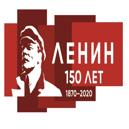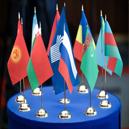В. И. Ульянов (Ленин) охарактеризован как выдающийся марксист, теоретические и практические результаты деятельности которого неизмеримо значительней всего того, что до сих пор сделано другими последователями Маркса и Энгельса. В опровержение грязных «танцев» либеральных политиков и теоретиков приводятся воспоминания о нем его современников, рисующие образ В. Ульянова как человека-гуманиста, выдающегося мыслителя и непоколебимого пролетарского революционера. На ряде примеров раскрывается замечание Ленина о том, что между желанием «быть марксистом» и умением им быть пролегает трудная, полная мировоззренческих и социально-политический препятствий дистанция.
“Bright star of humanity”. To the 150th anniversary of the birth of comrade Lenin
The article characterizes V. I. Ulyanov (Lenin) as an outstanding Marxist, whose theoretical and practical results are immeasurably greater than anything that has been done so far by other followers of Marx and Engels. In refutation of the dirty "dances" of liberal politicians and theorists around the historical figure of Lenin, the memoirs of his contemporaries are given, drawing the image of V. Ulyanov as a humanist, an outstanding thinker and an unshakable proletarian revolutionary. A number of examples reveal Lenin's remark that between the desire to "be a Marxist" and the ability to be one, lies a difficult, full of ideological and socio-political obstacles, the distance.
 Ранний опыт государственного строительства большевиков и Конституция РСФСР 1918 года
Ранний опыт государственного строительства большевиков и Конституция РСФСР 1918 года
 7
7
 25534
|
Официальные извинения
25534
|
Официальные извинения
 972
972
 106432
|
Становление корпоративизма в современной России. Угрозы и возможности
106432
|
Становление корпоративизма в современной России. Угрозы и возможности
 239
239
 85324
85324










